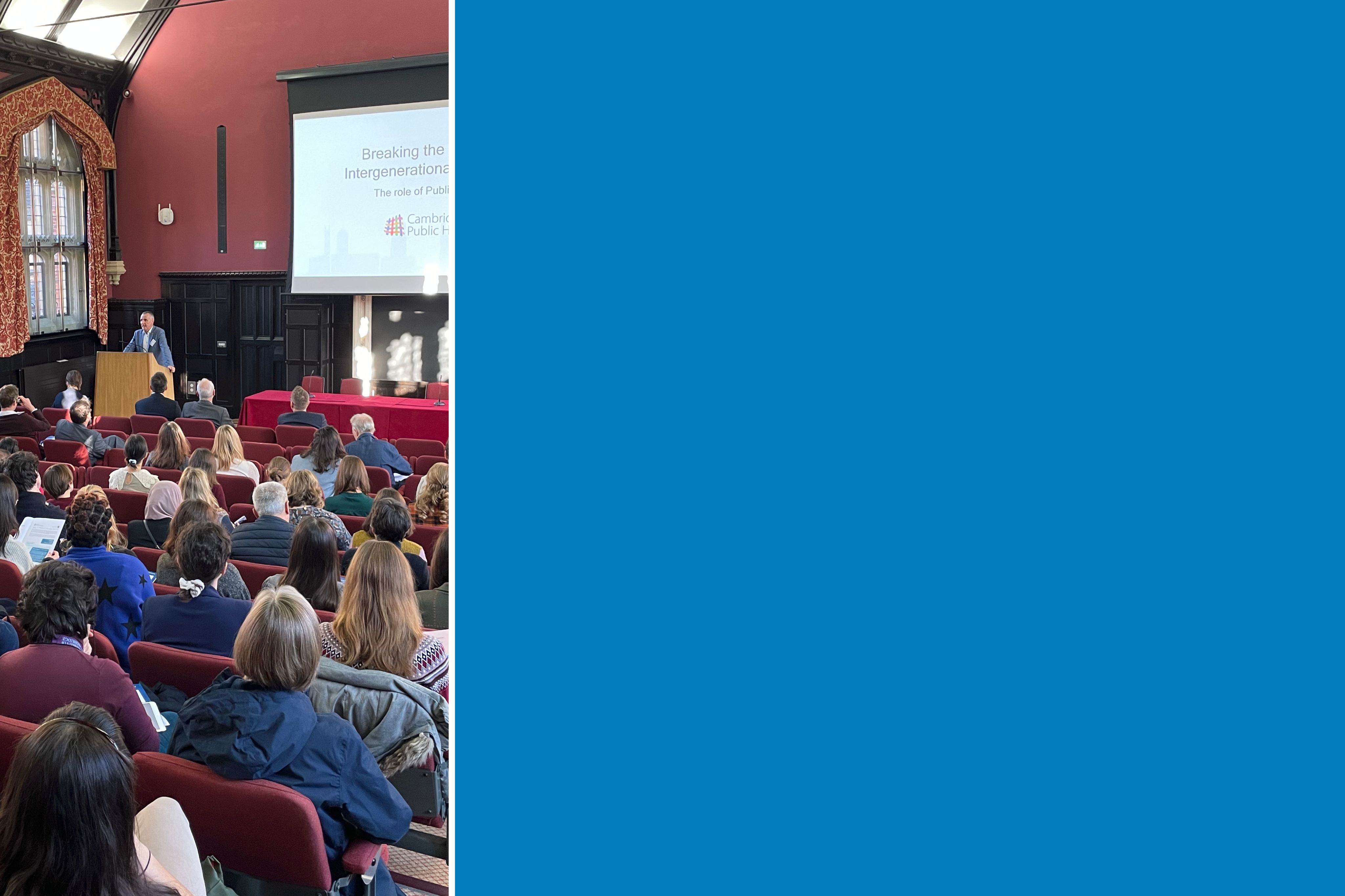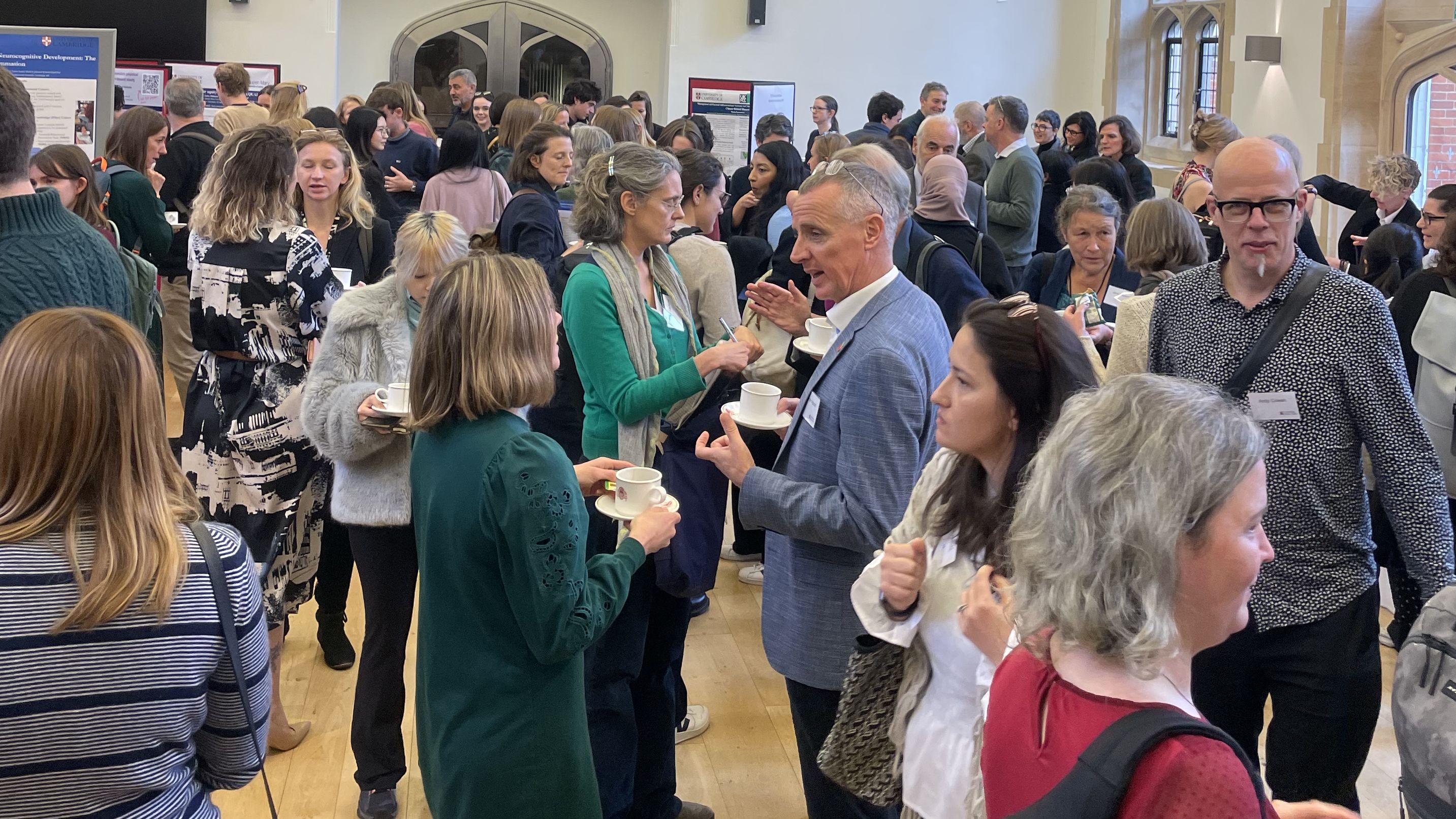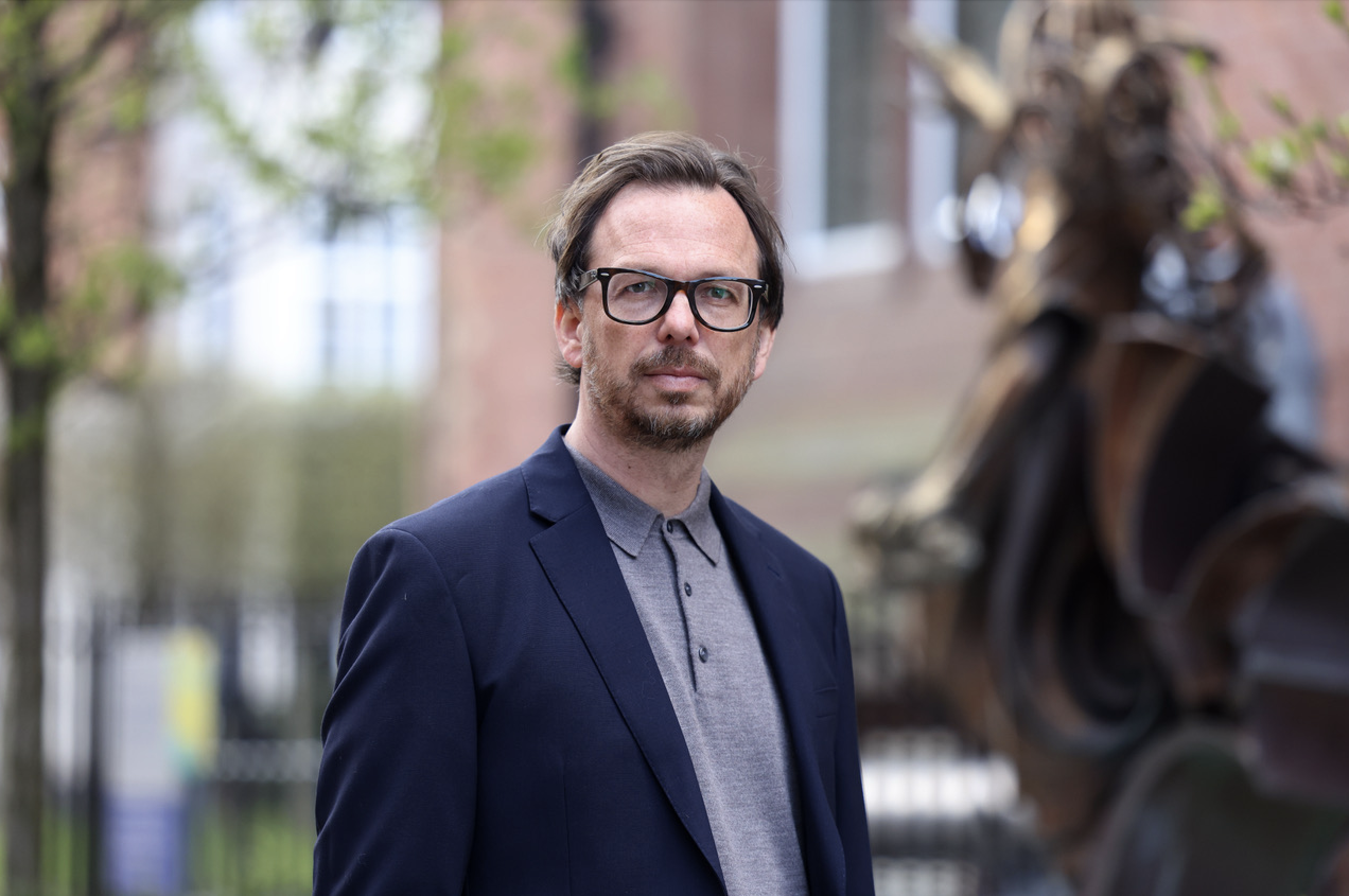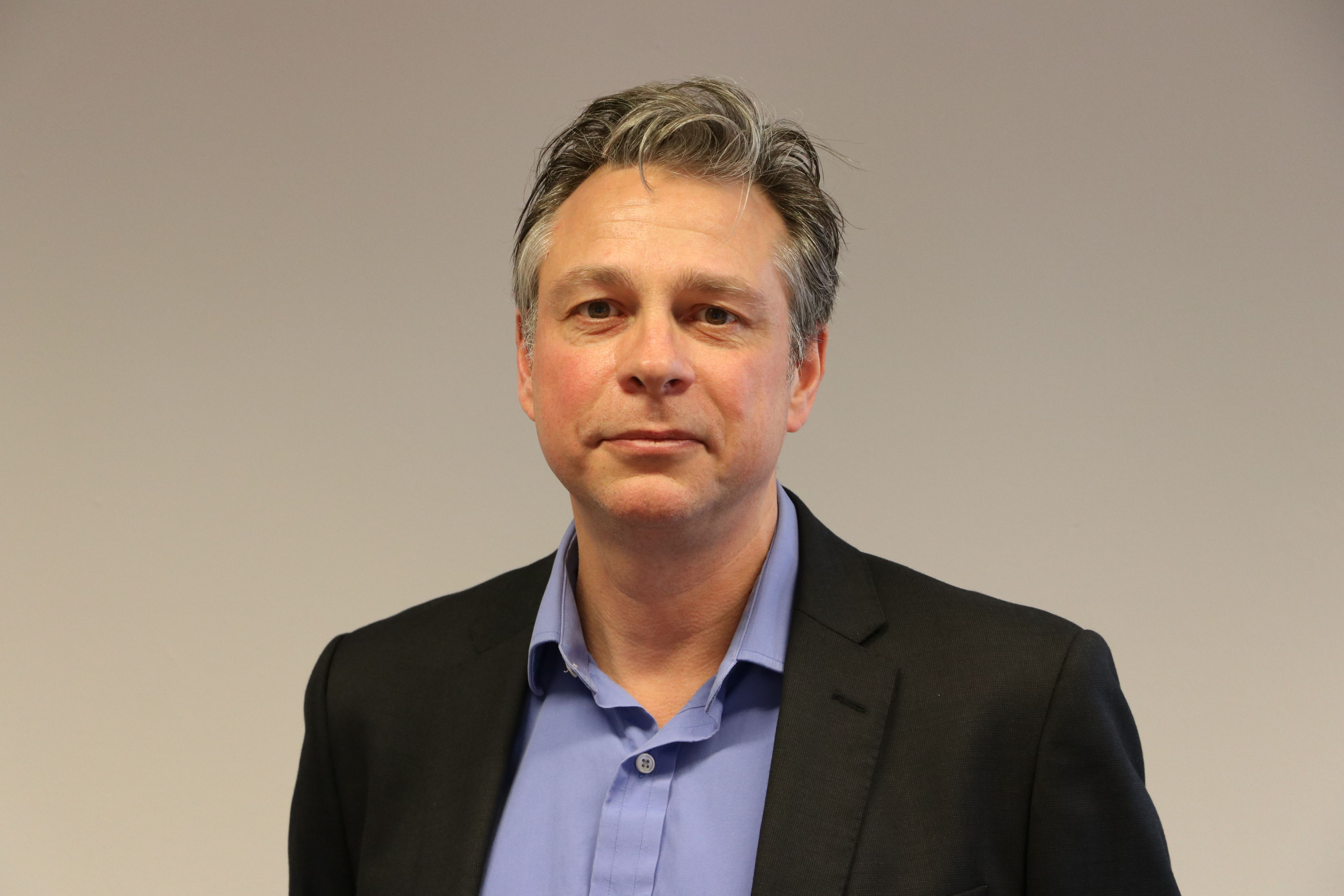
Keynote videos
Cambridge Public Health Showcase 2023
Breaking the Cycle of Intergenerational Adversity - the Role of Public Health

On 7 November, 2023, Cambridge Public Health held its annual showcase. The conference aimed to shed light on the profound impact of intergenerational adversity and explore insights to break the cycle of adversity, drawing on the latest evidence from across research areas and disciplines.
We were honoured to have four distinguished keynote speakers at the event, bringing with them a wealth of knowledge and a diverse range of perspectives on how we can move forwards.
Click on a link below or scroll down to view the recordings of the keynote presentations.

Keynote speakers
Addressing inequalities in child health: Lessons from the UK policy experiments in poverty and adversity
Professor David Taylor-Robinson
W.H. Duncan Professor of Health Inequalities, Professor of Public Health and Policy, Honorary Consultant in Child Public Health
Institute of Population Health, University of Liverpool
Professor Sir David Spiegelhalter
Communicating public health evidence: Informing or persuading?
In this keynote, Professor Sir David Spiegelhalter discusses the communicative relationship between academics, policymakers and decision-makers, media, and the public. Professor Spiegelhalter notes several case studies — what he calls ‘horror stories’ — where statistical mistakes led to misrepresentations in the media, and misunderstandings by the public.
Moreover, for Professor Spiegelhalter, the most important element of communicating is listening to the public. We need to identify our own biases in the world of research and be clear about what we find in academic work, even if our findings do not align with our own narrative. Informing others without attempting to persuade them is the best way to get the public to understand scientific research.
Professor Sir David Spiegelhalter
Professor David Taylor-Robinson
Addressing inequalities in child health: Lessons from the UK policy experiments in poverty and adversity
In his keynote talk, Professor David Taylor-Robinson introduces how the UK broaches health inequalities among children. Professor Taylor-Robinson opens by discussing the history of health inequalities in children, and follows by developing an overview of his own work in the northeast of England.
Young people, Professor Taylor-Robinson notes, frequently turn up at schools without shoes; parents of babies cannot afford formula, and often resort to watering it down — there is also evidence that parents terminate pregnancies because they cannot afford the cost of caring for a baby.
Professor Taylor-Robinson describes several policy experiments that may show a path to reducing childhood health inequalities — but notes that, as of now, the UK continues to drop down international rankings in children’s health. He highlights several statistics of note, such as life expectancy gaps, and suggests avenues for improvement. There need, Professor Taylor-Robinson says, to be “organised efforts in society.”
Professor David Taylor-Robinson
Dr Pete Mills
People, populations and genomes
In his keynote talk, Dr Pete Mills delves into the theme of People, Populations and Genomes.
Dr Mills opens by posing the question: why should personalisation be a goal of public health policy? He contends that people are diverse and treating all people as if they are the same may do them a moral injustice and lead to harm. Conversely, he argues that a more personalised approach to prevention and care can enhance effectiveness, reduce overdiagnosis and make better use of resources.
In the latter part of his keynote, Dr Mills raises broader ethical considerations around personalised care and the public and private interests it serves. In doing so, he acknowledges some of its challenges, balancing these against the benefits outlined above.
He concludes by advocating for an open and inclusive ethical discourse to resolve the interplay of social norms, individual freedoms, and professional responsibilities inherent in the personalisation of health care. This, he argues, should involve thinking about the future, thinking seriously about the impact of technology on social relations, and thinking about systems rather than discrete innovations.
Dr Pete Mills
Professor Sarah Harper
Communities of care
In her keynote presentation, Professor Sarah Harper, Director of the Oxford Institute of Population Ageing, University of Oxford, guides us through the evolution of a research project focused on developing long-term care in communities for older adults, and how it underwent a significant shift due to the impact of the COVID-19 pandemic.
Using data, Professor Harper underscores the profound effects of the pandemic across Europe, including within long-term care homes that were often under-prepared and lacking the necessary resources to safeguard their residents. She details how the pandemic prompted a re-evaluation of the research project, pushing researchers to adopt a more conceptual approach and embrace an advocacy role. The outcome of this shift was the formulation of a Long-term Care Empowerment model, emphasizing the importance of supporting individuals and communities in taking control of their lives and decisions.
Professor Harper concludes by referencing the UN Decade for Healthy Ageing 2021-2030, which prioritizes changing how society perceives, feels about, and acts toward age and aging. In a similar vein, she emphasizes the pressing need to transform our mindset and actions concerning care and caregiving.
Professor Sarah Harper
Writing is a medium of communication that represents language through the inscription of signs and symbols.
In most languages, writing is a complement to speech or spoken language. Writing is not a language but a form of technology. Within a language system, writing relies on many of the same structures as speech, such as vocabulary, grammar and semantics, with the added dependency of a system of signs or symbols, usually in the form of a formal alphabet. The result of writing is generally called text, and the recipient of text is called a reader. Motivations for writing include publication, storytelling, correspondence and diary. Writing has been instrumental in keeping history, dissemination of knowledge through the media and the formation of legal systems.

Visit our Early Career Researcher poster gallery
Cambridge Public Health's poster gallery features a vibrant collection of informative and engaging posters created by early career researchers at the University of Cambridge.
The posters loosely centre around the theme of 'Breaking the Cycle of Intergenerational Adversity - the role of public health'. Originally presented at the Cambridge Public Health Showcase on this topic in November 2023, these posters were part of a competition that attracted almost 50 submissions from across the university.





